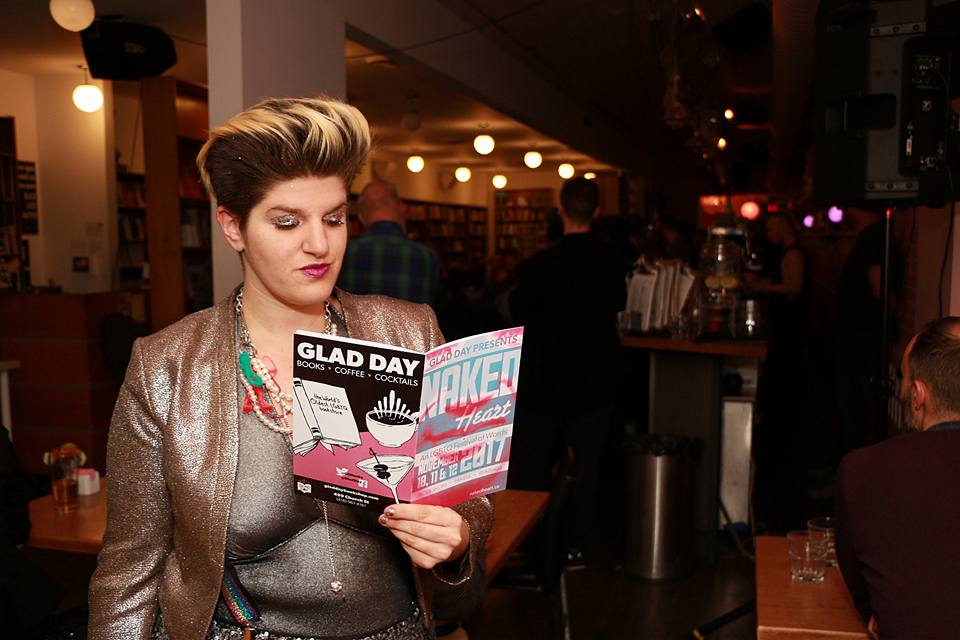The LGBT publishing scene is booming.
In recent years, festivals and media have increasingly showcased voices of queer and trans writers, providing them with platforms to share their stories. For instance, last week’s International Festival of Authors in Toronto featured LGBT writers such as Dionne Brand, Kai Cheng Thom, Vivek Shraya, Xtra’s Rachel Giese and Man Booker Prize winner Marlon James.
In April, Montreal’s Blue Metropolis literary festival also featured a mini-festival of queer writers called Violet Metropolis and kicked off a new literary prize to honour the body of work of an established Canadian LGBT author.
But you don’t need to be on the festival circuit to notice the explosion in queer and trans literature. CBC published a list of 14 hot Canadian LGBT writers for Pride; the local bookstores stock plenty of LGBT titles and these days you can even pick up Shraya’s latest, I’m Afraid of Men, in airport bookshops.
With our stories so readily available and our luminaries brightening big stages and platforms, you might be forgiven for thinking we no longer need festivals and gatherings specifically focused on queers. I would disagree — and I’m not alone.
Lauryn Kronick, one of the organizers behind Glad Day Bookshop’s Naked Heart LGBTQ Festival of Words, also feels the same way. Naked Heart, which is taking place Nov 9 to 11 at locations around Toronto’s gay village, is one of Canada’s largest and most diverse LGBT literary festivals. According to its website, the festival aims to “establish a yearly Canadian LGBTQ literary festival that amplifies love, language and freedom.”
“I think we need Naked Heart more than ever, because it brings queer and trans writers together within a space where they can share with each other and with their audience,” they say. “It’s a more intimate space created by and for writers.”
Kronick says that this year’s Naked Heart has no official theme. But looking at the program, what strikes me is that so many of the panels, workshops and readings revolve around various kinds of struggle.
For instance, the We Will Not Be Erased panel features trans authors who push back against the current political climate. In The Writer’s Hustle, writers discuss some of the challenges they face in paying bills and getting funding. Another panel asks, “Has queer pain eclipsed queer love in our literary tradition?”
Other panels and workshops address #MeToo and trauma survivorship, mental health struggles, HIV/AIDS, police violence, disability and racism, all from the perspective of writers and writing.
When I point out the grimness of the topics in this year’s festival, Kronick says a lot of queer writers “think about pain, [about] dealing with pain, working with and through it.”
They say there are also challenges in organizing the festival. “We think about, how do we run the space that is Glad Day, to keep it afloat as a business, and how do we honour all the voices that come to this festival.”
“It’s a struggle to be a writer, all of us who attend and run the festival are writers in our own way. And there are so many intersecting pieces of ourselves that we bring to our writing,” they say.
This doesn’t mean it’s all pain, though. In fact I think the LGBT community has a particular knack for finding joy even in the midst of struggle.
For instance, Kronick points out the record number of book launches at this year’s Naked Heart, noting that launches always add a celebratory feel. There are also whimsical events, like a workshop with novelist Debra Anderson on writing characters based on astrology, and warm-hearted ones, like a panel of writers whose work focuses on queer conception, adoption and family-making.
The festival also features dance parties, a drag brunch and sexy nighttime reading events like GritLit and Blazing Femme, which Kronick says “packed the house last year.”
With its wide variety of topics and speakers, Naked Heart looks like a microcosm of queerness itself, with all its contrasts and complexities. It’s easy to be dazzled by the mainstream attention to queer and trans stories, and of course our community’s talents absolutely deserve to be showered with praise and prizes galore. But queer-focused events like Naked Heart give us space to connect with the grit behind the glamour, and help us dive down into the more complicated conversations we can sometimes only have with each other.


 Why you can trust Xtra
Why you can trust Xtra


